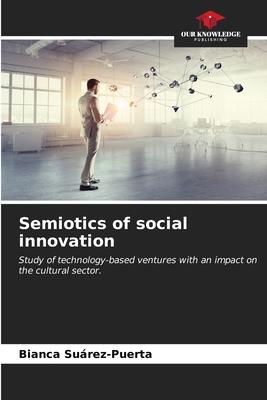For developing countries, exporting their cultural goods and services is an excellent way to generate employment and foreign exchange. Strengthening identity by enriching confrontation with other cultures, it is in the exchange and evidence of diversity that social innovation achieves its true meaning. These exchanges, both internally and with external stakeholders, increase plurality and have a measurable effect on cultural, environmental and social capital. In this transdisciplinarity of knowledge, projects are designed within a universe of meaning in which disciplines are fields in dialogue and inclusion of other actions with new purposes. Therefore, social innovation actions go beyond the monetization of social impact, in financial terms, since in some way it is expected that in the future it will be possible to transform the meaning. Although visions, perceptive conventionalisms and obsolete organizational schemes persist, innovative solutions to urgent global challenges also emerge.
| FindBook |
有 1 項符合
Semiotics of social innovation的圖書 |
 |
Semiotics of social innovation 作者:Suárez-Puerta 出版社:Our Knowledge Publishing 出版日期:2024-01-17 語言:英文 規格:平裝 / 56頁 / 22.86 x 15.24 x 0.33 cm / 普通級/ 初版 |
| 圖書館借閱 |
| 國家圖書館 | 全國圖書書目資訊網 | 國立公共資訊圖書館 | 電子書服務平台 | MetaCat 跨館整合查詢 |
| 臺北市立圖書館 | 新北市立圖書館 | 基隆市公共圖書館 | 桃園市立圖書館 | 新竹縣公共圖書館 |
| 苗栗縣立圖書館 | 臺中市立圖書館 | 彰化縣公共圖書館 | 南投縣文化局 | 雲林縣公共圖書館 |
| 嘉義縣圖書館 | 臺南市立圖書館 | 高雄市立圖書館 | 屏東縣公共圖書館 | 宜蘭縣公共圖書館 |
| 花蓮縣文化局 | 臺東縣文化處 |
|
|
圖書介紹 - 資料來源:博客來 評分:
圖書名稱:Semiotics of social innovation
|
![向大師學繪畫:西方藝術大師名畫復刻版,讓繪畫技巧升級的14堂繪畫課[隨書附贈28支示範影片] 向大師學繪畫:西方藝術大師名畫復刻版,讓繪畫技巧升級的14堂繪畫課[隨書附贈28支示範影片]](https://cdn.kingstone.com.tw/book/images/product/20194/2019479578260/2019479578260m.jpg)









